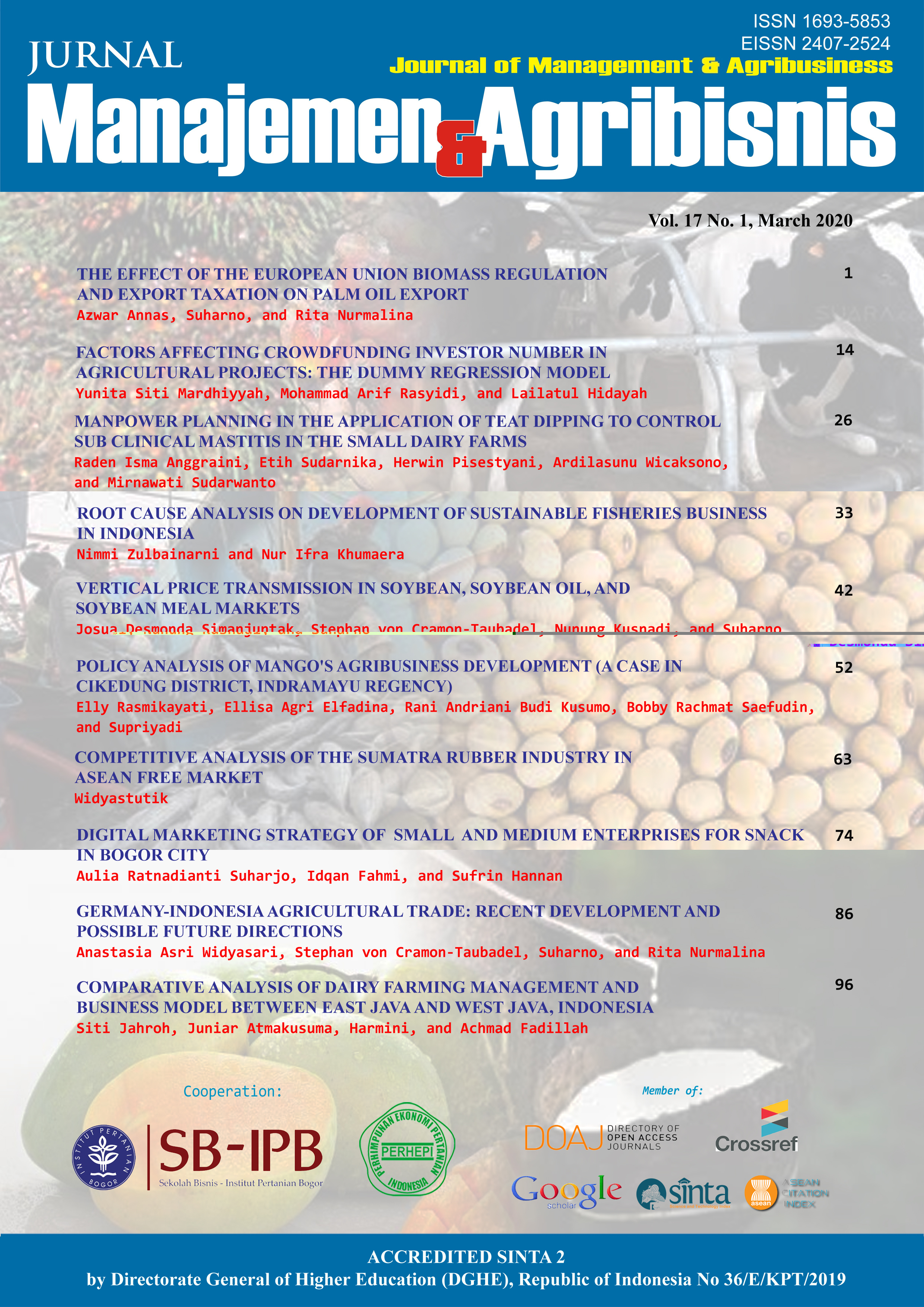The Effect of The European Union Biomass Regulation and Export Taxation on Palm Oil Export
Abstract
The European Union is one of the world's largest markets for palm oil products. This study used the gravity models theory to analyze the potential changes of palm oil trade flow from Indonesia and Malaysia with a focus destination countries to the European Union. The focus of the study is to analyze the decreasing or increasing trade flow of palm oil due to the biomass regulation changes in the European Union and the export tax on palm oil. The research model involved 85 percent of the global palm oil market which is 61 countries of refined palm oil (RPO) consumers and 23 countries of crude palm oil (CPO) consumers over the period dating from 2006 to 2018. The two types of palm oil export products are clearly distinguished to see the different changes in both types of products trade flow due to the influential factors. The gravity model for analyzing data uses OLS and PPML regression. The results show that the CPO export tax has a significant positive impact on RPO exports but does not have a significant impact on CPO exports. Similar analysis results occur in the variable of biomass regulation change in the European Union, which has a significant negative impact on RPO exports but does not have a significant impact on CPO exports.
Keywords: biodiesel, biomass regulation, export tax, gravity model
Authors
Authors who publish with this journal agree to the following terms:
- Authors retain copyright and grant the journal right of first publication with the work simultaneously licensed under a Creative Commons Attribution License that allows others to share the work with an acknowledgement of the work's authorship and initial publication in this journal.
- Authors are able to enter into separate, additional contractual arrangements for the non-exclusive distribution of the journal's published version of the work (e.g., post it to an institutional repository or publish it in a book), with an acknowledgement of its initial publication in this journal.
- Authors are permitted and encouraged to post their work online (e.g., in institutional repositories or on their website) prior to and during the submission process, as it can lead to productive exchanges, as well as earlier and greater citation of published work (See The Effect of Open Access).

